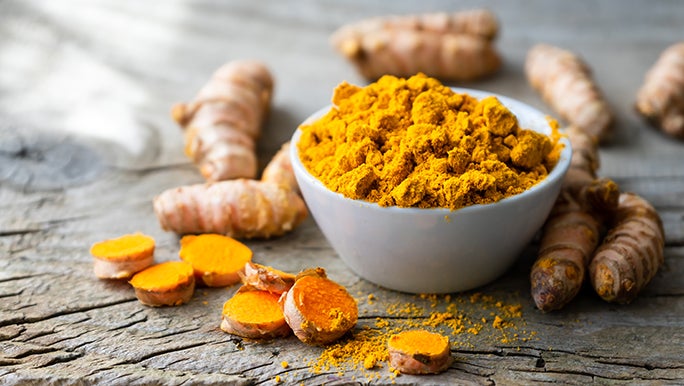The time-tested power of adaptogens for stress relief

Key points about stress relief products and adaptogens
- Adaptogens are nature's original stress relief products and have been used for thousands of years.
- You’re probably familiar with some adaptogens without knowing that’s what they’re called.
- They may help you adapt to stress.
- Adaptogens may cause interactions with some medications, so speak to your GP before consuming them.
If you’ve done any reading on the immune system and what affects your immune system, you may have come across the term adaptogens.
While it may seem like a new buzzword, there’s actually nothing new about adaptogens – they are nature's original stress relief products. The term “adaptogen” was first defined in the 1940s. Even before then, they’ve been used in traditional Chinese medicine for thousands of years. But what are adaptogens exactly?
Whether it’s emotional stress, physical stress or chemical stress, adaptogens may help the body adapt to any stress that it comes across.
Naturopath, Jessica Milroy, is a proponent of adaptogens and says they are “herbs that may help the body adapt to stress.” Intriguing, right?
So, which herbs are adaptogens? And what possible role do they play in helping the body respond to stress?
Nature's stress relief products: which herbs are adaptogens?
The list of adaptogens includes some herbs you’re probably familiar with and others you’ve probably never heard of.
“When we talk about which herbs are adaptogens, we are talking about things like licorice and withania (otherwise known as ashwagandha),” explains Jessica.
Herbs that studies have shown to have adaptogenic properties include:
- Panax ginseng ( Korean ginseng)
- Schisandra chinensis (schisanda)
- Eleutherococcus senticosus (Siberian ginseng)
- Rhodiola crenulata (rhodiola)
- Lepidium meyenii ( maca)
- Ocimum tenuiflorum (holy basil or tulsi)
- Curcumin longa ( turmeric)
That’s quite the mouthful to take in! The point is, you might already be consuming some adaptogens without even realising it, particularly if you enjoy cooking with turmeric or adding maca to your smoothies!

You might already be consuming some adaptogens without even realising it, particularly if you enjoy cooking with turmeric or adding maca to your smoothies.
What do adaptogens do?
Now comes the interesting part – how adaptogens work and what effects they may have on your body.
“One thing that’s really great about adaptogens is many of them may help to bring the body back into homeostasis,” says Jessica. “Homeostasis is basically when your body is balanced and running at its best.”
Jessica points out that there’s an interesting connection between adaptogens, stress and the immune system.

Stress and immune system health
63% of Australians report having at least one personal stressor in life. What impact is this having on their health?
“Whether it’s emotional stress, physical stress or chemical stress, adaptogens may help the body adapt to any stress that it comes across,” she explains.
“If you think about when you've been really stressed, that's the time that your immune system is at its poorest. By playing a role in helping your body adapt to and handle the stress that you are experiencing, it may be supportive of good immune health.”
Then there’s sleep. Jessica says that adaptogens may also help with sleep.
“If you’re sleeping better, your immune system benefits,” she explains. “What adaptogens may do is to help reset your body clock. When your body clock is as it should be, you’ll likely get a deeper quality of sleep and that can help with your immune health.”
Jessica also mentions that adaptogens may help to reduce inflammation in the body. Inflammation caused by eating a lot of processed foods can also play a role in reducing immune function.
Much like the effects of exercise on the immune system, adaptogens may play multiple roles in making positive change.

Adaptogens may interact with some medications.
Are stress relief products like adaptogens for you?
If you’re wondering how to take adaptogens or what adaptogens you should take, it’s important that you speak with your health practitioner.
This is also the case if you have any underlying health conditions and you’re curious about stress relief products like adaptogens and vitamins for immune system health.
“Adaptogens may interact with some medications,” Jessica says. “They may also not be suitable with other health conditions, so it is important to speak with your health practitioner before you start taking any adaptogens.”
Stress relief adaptogens and you
So that’s the lowdown on adaptogens. If you’re concerned about stress and your immune health, it may be worth a conversation with your health practitioner about how adaptogens or other stress relief products may benefit your situation.
Jessica Milroy is a Naturopath who combines evidence-based functional medicine with a range of complementary therapies and lifestyle supportive strategies to find and treat the root cause of an illness, empowering her clients to be well in the process.
Recommended reading
Reviewed by the healthylife Advisory Board August 2021.
Updated July 2022



